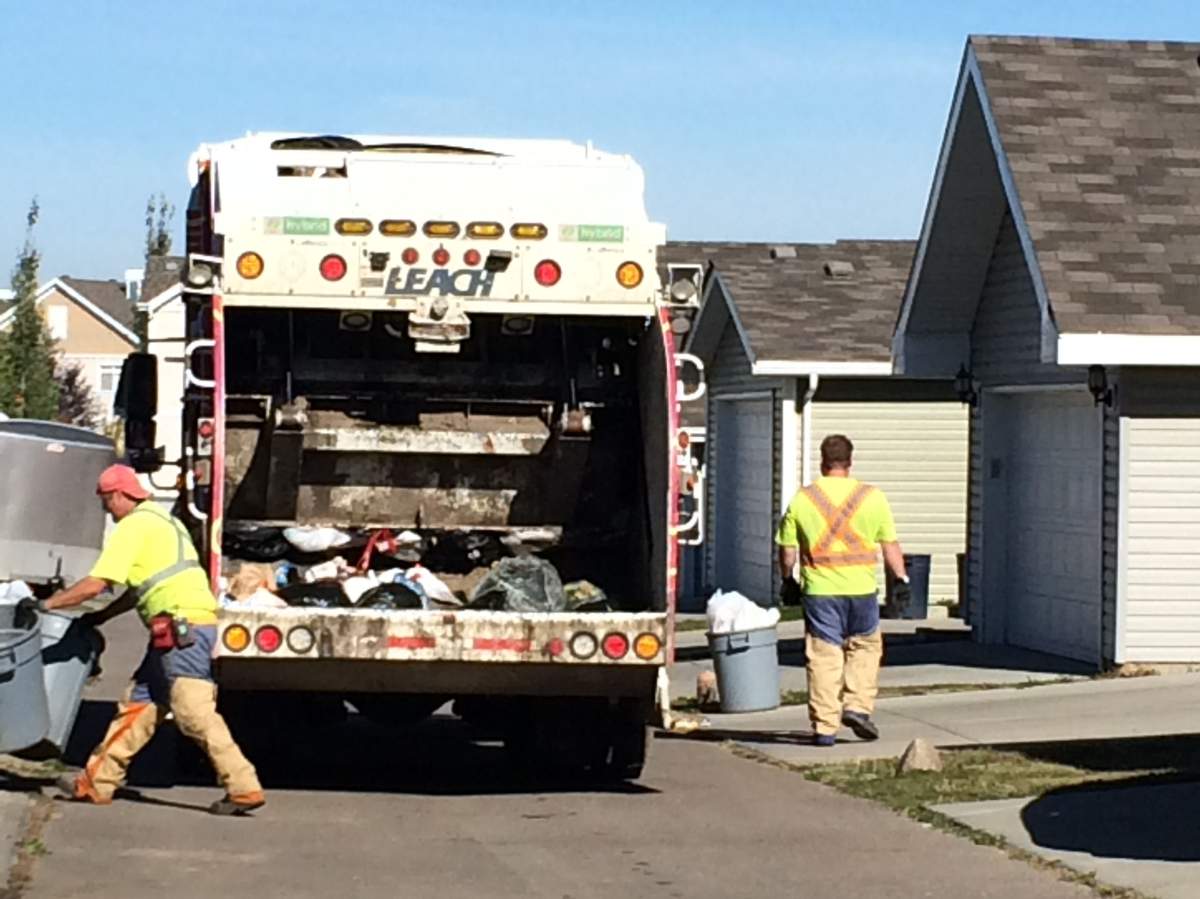People who live in Edmonton will be paying monthly increases on their utility bills to help the waste management branch cope with an entirely new business model over the next four years.

However, the details of what specifically each increase is for won’t be worked out until February.
Branch manager Mike Labrecque said the initial draft budget will be reviewed by council’s Utilities Committee on Nov. 16, however more firm decisions will be made next year when the business cases are finalized for all of the changes in service delivery.
A whole new composter is needed, but the size is still to be determined. A public survey that is online, and being done through workshops is still being gathered.
READ MORE: City wants your opinion about future of Edmonton waste management
Since by law, utilities have to stand on their own and can’t depend on property taxes, each aspect of the operation has to pay for itself.
“What are we doing with the compost” is one component, Labrecque said. “The other one is we’re planning for our first seasonal pickup of leaf and yard (waste) in spring of next year.

Get daily National news
“Then we’re going to plan to roll-out the source separator organics pilot for between 5,000 and 8,000 homes in April next year as well. So all of those things play into our operating plans and our cash flows.”
A rate increase of 2.5 per cent per year for the next four years would mean a monthly waste utility fee increase for 2019 of $1.15 for single-unit homes and $0.75 increase for multi-unit homes.
READ MORE: Edmonton’s long-praised waste management system struggling to divert 50% of residential garbage
“Running those eco-stations are in those rates. Composting is in those rates. Collections are in those rates. Drop-off locations are in those rates. But we have to build the rates up, so essentially all of that is going to be in that 2.5 per cent change.”
The online survey is finding out from citizens what they think should be set out at the curb. It’s more than likely a new system of carts where garbage and recyclables are separated will be needed. The city has to build up its cash reserves to pay for all of them, Labrecque said.
“Three of those set-outs have carts. There’s a clear-bag one and there’s also one with four bags so we’re engaging on those now.
“We’ll bring back a ‘what we heard’ report back to Utility Committee on the balance of the engagement in February and then we’ll make some sort of recommendations from there.”
READ MORE: Edmonton looking at whole new garbage collection system
Those carts will be lifted and dumped into garbage trucks mechanically, meaning just one worker per truck, the driver.
“Where the efficiencies are we believe in through other experiences is that we can move from 700 to 800 houses a day to closer to 1,000 (per vehicle). So all of that analysis has to be done and that’s why we do business cases when we bring that detail back before any decisions are made.”
READ MORE: Edmonton considers ways to tackle stinky sewer ‘hot spots’
A review on if the business case will still be split 50-50 between the private sector and the city running operations itself is also being carried out, however Labrecque said they’re proceeding right now on the basis of it still being evenly divided.











Comments